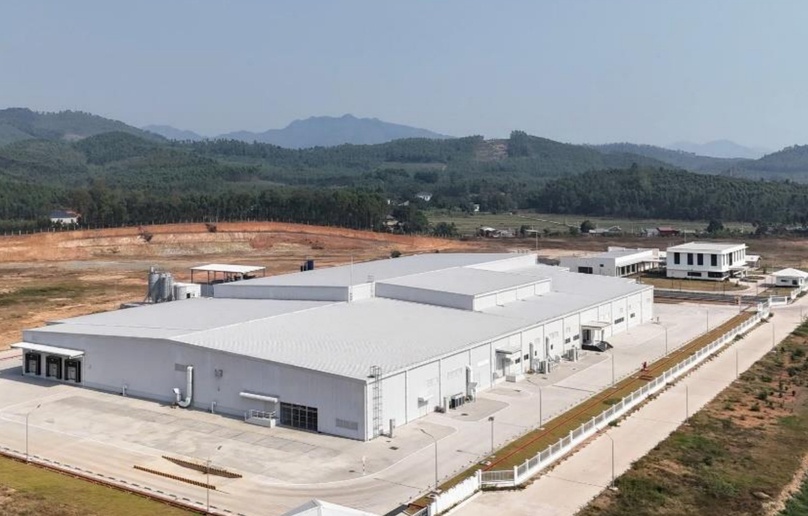Local retailers nudged out by foreign players
 How attractive is Vietnam to foreign retailers?
How attractive is Vietnam to foreign retailers?
With its population of over 93 million, Vietnam has reaped relatively high economic growth over the past few years. The local purchasing power has also surged. Meanwhile, modern trade currently occupies just 25 per cent of Vietnam’s total retail market. As such, the potential development for supermarkets and commercial centres is huge right now. Foreign retailers have entered
Vietnam in vast numbers, with larger investments and business strategies that are far more effective than local ones. This has been causing headaches for many local retailers, who are losing ground to foreign rivals by selling partial or entire stakes to them. This threat will be greater following the establishment of the ASEAN Economic Community and the Trans-Pacific Partnership. Upon the trade blocs’ entry into force, almost all tariff barriers will be removed, creating difficulties for Vietnamese goods, which will have to compete with foreign goods imported by foreign retailers that have well-established and convenient systems of distribution.
Thai retailers have probably been the most aggressive in building their presence here in Vietnam. Central Group made its debut in 2015 with the acquisition of a 49 per cent stake in electronics retailer Nguyen Kim. Later in the year, Berli Jucker – whose parent company TCC Holdings paid for Metro Cash & Carry in Vietnam – announced its interest in acquiring Big C’s supermarket operations from French player Groupe Casino. Other interested bidders are Singapore’s Dairy Farm and South Korea’s Lotte Shopping. Both of the two new potential investors are financially strong.
How have local retailers coped with this threat?
Sadly, most local retailers have no strategy to cope with foreign rivals, and the state has also taken no action to protect them. In fact, local retailers and the state should have had plans in place to cope with foreign retailers years ago. Local retailers are currently focusing on short-term development without heeding merger and acquisition threats that may face them in the near future. I think that the sole solution for local retailers now is to co-operate with one another, with a leading firm capable of rallying all local retailers to conduct a shared development strategy.
Although this recommendation may seem more theoretical than practical, if well implemented, local retailers could rebound strongly as a result. However, local enterprises must co-operate with one another voluntarily. If their co-operation is purely for form’s sake, their performance will surely fail. The threat of losing more local market share is looming ever more clearly.
To limit the penetration of foreign retailers, the government instigated the economic needs test (ENT) in 2007, requiring foreign investors to meet strict conditions before establishing a new retail outlet. Do you think the ongoing expansion of foreign retailers means the ENT has proved ineffective?
Yes. We shouldn’t pin our hopes on the ENT, as it is merely a hurdle on paper. The ENT has become ineffective, because the government has been decentralising investment attraction. All localities have been racing to draw in investment, paying no heed to the ENT. Thus, the ENT is almost completely theoretical. Meanwhile, foreign retailers know how to carve out a firm niche in the local market, with effective solutions. For example, they co-operate with local firms along a clear business roadmap. Under the roadmap, they initially play a humble role in joint ventures. Then they will find ways to increase stakes in the companies until they can have a controlling stake. That’s one of the best ways they can skirt the ENT obstructions.
How will Vietnam’s retail market progress over the next five years?
We don’t need to consider such a long-term vision. Let’s examine the current situation. The local market is being controlled by foreign retailers. It is expected that the Thais will be the largest retailers in Vietnam, not Saigon Co.op as is the case now. If Central Group buys the remaining stakes from Nguyen Kim as well as stakes in Big C, they could supplement their strong existing retail chain in Vietnam and become Vietnam’s leading retailer. Or consider Japan’s Aeon, which acquired local peers Fivimart and Citimart last year. The group is planning to expand its investment in Vietnam, with an average of $200 million per new supermarket. This year might also be a strategic milestone for Japan’s 7-Eleven, as the chain is planning to open its first stores in Vietnam in April 2017. Thus, in the near future, Vietnam’s retail market is almost sure to be controlled by foreign retailers.
Is this good news for customers, as they will surely benefit in terms of price and quality from such broad competition?
Of course, the competition will benefit customers. However, once local supermarkets are narrowed down, local goods at supermarkets will also be affected, thus hurting local production and employment. When foreign retailers have totally won in the market, they may become monopolists and can then increase their prices, thus affecting customers.
What the stars mean:
★ Poor ★ ★ Promising ★★★ Good ★★★★ Very good ★★★★★ Exceptional
Latest News
More News
- Georgia: the right place to visit and invest (December 18, 2024 | 16:15)
- Quang Ngai’s incentives will lure in industrial investment (December 17, 2024 | 17:00)
- Dong Thap excited to hail investors to industrial zones (December 17, 2024 | 15:00)
- Dong Thap pushes on with crane conservation efforts (December 17, 2024 | 12:00)
- Wholesale upgrades drive Tien Giang goals (December 17, 2024 | 11:00)
- Investing channels worth attention (December 17, 2024 | 09:08)
- Proper mindset vital for serious investors (December 16, 2024 | 16:30)
- Market signals point to new openings for investment (December 16, 2024 | 12:09)
- Drivers remain strong for consumer sector (December 14, 2024 | 16:00)
- Decoding the variables shaping investments in 2025 (December 13, 2024 | 10:53)













 Mobile Version
Mobile Version